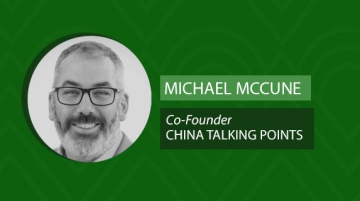
For centuries the Indian Ocean was a vital conduit in the British empire, connecting colonies in South Asia with Africa as part of a vast imperial network. Today, the Indian Ocean once again plays as a vital role in an emerging global trading empire, this time China’s. Beijing is developing a strategic trading agenda known as the Maritime Silk Road that is the part of its new, robust global strategic “One Belt, One Road” policy that is designed to link the PRC to the world’s major trading hubs in Africa, Central Asia and the Persian Gulf among others.
In Africa, the Chinese are rapidly building massive rail and port infrastructure projects in Kenya, Somalia, Uganda and Tanzania. While it is not known if all of these various projects are part of a larger integration plan into the Maritime Silk Road, there is no doubt that once these new facilities are operational Chinese enterprises stand to gain significant benefits.
Separately, the Chinese navy is aggressively challenging the status quo on all sides of the Indian Ocean, simultaneously unnerving the region’s hegemonic powers in New Delhi, Washington and London.
With so many countries bordering the Indian Ocean, the stakes for Africa are extremely high, according to a new report from the South African Institute of International Affairs. The report’s authors, Elizabeth Sidiropoulos and Dr. Chris Alden join Eric & Cobus to discuss the new geopolitics of China, Africa and the Indian Ocean.
 Elizabeth Sidiropoulos is the Chief Executive of the South African Institute of International Affairs in Johannesburg. Before her current appointment she was director of studies at SAIIA from 1999 to April 2005. She was previously research director at the South African Institute of Race Relations and editor of the highly acclaimed Race Relations Survey (now the South Africa Survey) an annual publication documenting political and constitutional developments, and socio-economic disparities in South Africa. She is the editor-in-chief of the South African Journal of International Affairs. She serves on the Scientific Advisory Board of the EU’s Development Commissioner and is a member of the International Advisory Board of the Indian Foreign Affairs Journal.
Elizabeth Sidiropoulos is the Chief Executive of the South African Institute of International Affairs in Johannesburg. Before her current appointment she was director of studies at SAIIA from 1999 to April 2005. She was previously research director at the South African Institute of Race Relations and editor of the highly acclaimed Race Relations Survey (now the South Africa Survey) an annual publication documenting political and constitutional developments, and socio-economic disparities in South Africa. She is the editor-in-chief of the South African Journal of International Affairs. She serves on the Scientific Advisory Board of the EU’s Development Commissioner and is a member of the International Advisory Board of the Indian Foreign Affairs Journal.
 Professor Chris Alden holds a Readership in International Relations at the London School of Economics and Political Science. He taught International Relations at the University of the Witwatersrand from 1990 to 2000 and established the East Asia Project in 1992. He has held fellowships at Cambridge University, Tokyo University, Ecole Normale Superieure, and University of Pretoria. Alden is the author/co-author of numerous books, including Mozambique and the Construction of the New African State (Palgrave 2003), China in Africa (Zed 2007), The South and World Politics (Palgrave 2010), and co-editor of A Mamba e o Dragão: Relações Moçambique-China em perspectiva, Cidadania e Governação em Moçambiqu,(IESE/SAIIA 2012), China Returns to Africa (Hurst 2008), as well as articles in internationally recognised journals. He taught at the University of the Witwatersrand from 1990 to 2000.
Professor Chris Alden holds a Readership in International Relations at the London School of Economics and Political Science. He taught International Relations at the University of the Witwatersrand from 1990 to 2000 and established the East Asia Project in 1992. He has held fellowships at Cambridge University, Tokyo University, Ecole Normale Superieure, and University of Pretoria. Alden is the author/co-author of numerous books, including Mozambique and the Construction of the New African State (Palgrave 2003), China in Africa (Zed 2007), The South and World Politics (Palgrave 2010), and co-editor of A Mamba e o Dragão: Relações Moçambique-China em perspectiva, Cidadania e Governação em Moçambiqu,(IESE/SAIIA 2012), China Returns to Africa (Hurst 2008), as well as articles in internationally recognised journals. He taught at the University of the Witwatersrand from 1990 to 2000.








